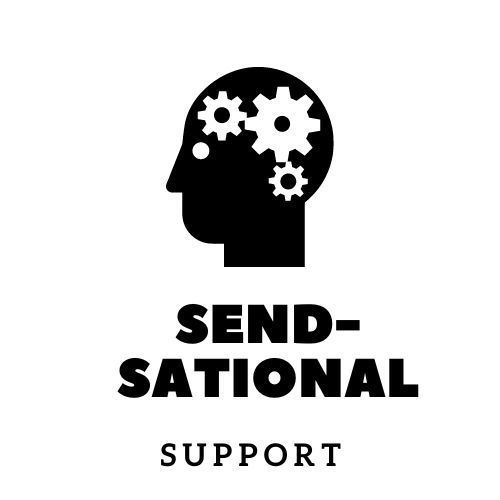How a Six Step Approach for Leaders Ensures Inclusion in Early Years
Explore the Importance of your Leadership Approach in Ensuring Inclusion in the Early Years
At Send-sational Support we believe there are six steps
to creating a truly inclusive early years provision.
This blog takes a closer look at how the program can assist leaders to...
Explore the Importance of their Leadership Approach in Ensuring Inclusion in the Early Years
Inclusion is a fundamental principle in early years education, emphasizing equal opportunities and support for all children, regardless of their abilities or backgrounds. To effectively foster inclusion, a top-down approach is necessary, which involves leadership and management actively promoting and implementing inclusive practices throughout the entire early years setting. Read on to discover how our services can help support your approach.
Leadership Commitment
Inclusion starts with leadership commitment and a clear vision for an inclusive early years setting.
Leaders and managers, play a crucial role in setting the tone and driving the inclusion agenda.
They should articulate the importance of inclusion, set policies, and establish a culture that promotes diversity, acceptance, and support. SENDsational Support provides an auditing service to review the fundamentals of your provision to highlight strengths and areas for improvement. This insight assists with the commitment to set effective objectives for business development and progression.
By demonstrating their commitment, leaders inspire and empower staff to embrace inclusive practices.
Policy Development
Developing inclusive policies is an essential step in the top-down approach. Policies should explicitly address inclusion and provide a framework for action and guide decision-making at all levels of the early years setting. Step one in our program 'Ethos', can support with review and updates to ensure that policies align with current best practices and legislative requirements.
Resource Allocation
Ensuring adequate resource allocation is essential for inclusive practices. Leaders should allocate resources, both human and material, to support inclusion effectively. This may include providing assistive technologies, adapting the physical environment, and assigning additional staff to support individual children's needs. Adequate resources enable staff to create inclusive learning environments and meet the diverse needs of all children. Step two in our program 'Access', can support with review of the environment to ensure it enables the confidence of children and staff.
Collaborative Partnerships
Building collaborative partnerships with families, external professionals, and the wider community is an integral part of the top-down approach. Leaders should foster positive relationships with families, actively seek their input and involvement, and promote open communication channels. Engaging external professionals, such as specialists or support agencies, allows for a multidisciplinary approach to supporting children with additional needs. Step three in our program 'Trust' can provide updates and recommendations on best practices that build trusting partnerships.
Staff Training and Professional Development
Investing in staff training and professional development is crucial for implementing inclusive practices. Leaders should provide opportunities for staff to enhance their knowledge and skills in areas such as inclusive teaching strategies, identifying and supporting children with additional needs, and promoting diversity and equality. Step four of our program 'Team' offers training and professional development to empower staff to create inclusive environments and meet the diverse needs of all children effectively.
Curriculum Design
Creating an inclusive educational programme is fundamental to an early years establishment. Leaders should ensure staff have in-depth knowledge of a step-by-step approach to learning, in order to provide activities and experiences that are effective in promoting children's progress across the curriculum. Step five 'Program' offers a comprehensive understanding of inclusive curriculum design that develops all children to help them thrive socially and cognitively.
Mindful Routines
Fostering a supportive environment is an integral element of inclusion in early years. Leaders should provide safety and predictability through routines and boundaries which help children to feel loved, cared for and above all safe in the knowledge that the adult knows what they are doing, that they are in control. Our sixth step 'Routine' can support with the review of daily schedules and effective communication strategies that support inclusive practices.
Monitoring and Evaluation
Regular monitoring and evaluation are vital to assess the effectiveness of inclusive practices. Leaders should establish mechanisms to collect data, gather feedback, and evaluate the impact of inclusive policies and practices. This information allows for ongoing reflection and continuous improvement. Monitoring and evaluation is part of SENDsational consulting services and provides valuable insights to identify areas of strength and areas that require further attention, leading to more effective inclusive strategies.
Six Steps to an Inclusive Early Years Provision
The six step approach for leaders is essential for ensuring inclusion in early years settings. Through leadership commitment, policy development, resource allocation, collaborative partnerships, staff training, curriculum design, mindful routines and ongoing monitoring and evaluation, the top-down approach empowers all stakeholders to embrace inclusive practices. By embedding inclusion as a core value and providing the necessary support and resources, early years settings can create an environment where every child feels valued, supported, and included. The six step approach for leaders paves the way for lifelong learning, positive social interactions, and the holistic development of all children.
Children First.











